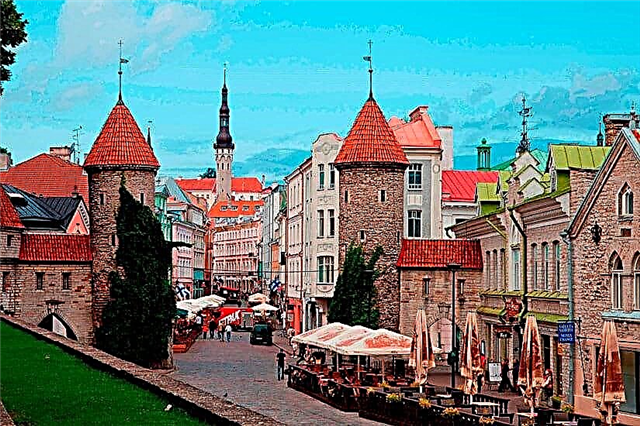In the CIS countries, a social worker is not the most prestigious profession. But in Europe, this area is given significant attention and is actively attracting foreign citizens to this type of activity. Social work in Germany in 2021 is an extensive system of services that includes caring for the elderly, people with disabilities, children and other socially vulnerable groups of the population.

Why social work matters
The institution of social work developed in parallel with the history of society. According to researchers, the first examples of what we now call social work appeared in the days of the communal tribal system. Of course, the procedures have changed over time, but today no state can do without specialists in this profile.
The training of social workers in Germany lasts 3 years. The purpose of social work is to help people in difficult life situations.
In addition, social work ensures the maintenance of connections and relationships between different social strata of the population. Since the state assumed the function of organizing social work, it has become systematized, certain principles and methodologies have been developed that make it possible to carry out this activity as efficiently as possible.
Types of social professions in Germany
There are a huge number of social professions in Germany, and everyone who wants to try himself as a social worker can choose the most suitable one for himself. The following professions should be classified as social:
- Assistant Social Worker for the Elderly;
- a social worker caring for the elderly;
- a psychotherapist working with children and adolescents;
- teacher (necessarily with a special education);
- farming assistant in the village;
- family counselor;
- educator;
- household assistant in the family (work as a housekeeper);
- assistant in raising children.
What social programs exist in Germany
In Germany, there are a number of social programs that allow foreigners to get a job both with knowledge of the language and without it.
FSJ program
Freiwilliges Soziales Jahr (FSJ) is a government program that empowers young people to put social work skills into practice. This is a great opportunity to learn a language, travel the country and gain professional experience. In addition, this program is a great help for admission to the university.
FSJ is designed for young people between the ages of 18 and 26 inclusive.
The duration of the program is 1 year, but if desired, it can be extended up to 18 months. During the practice, the participants are paid a monetary reward, which is certainly less than the minimum wage, but which makes it possible to recoup their stay in Germany.
Features of this program:
- This is a live-in program - participants are provided with a furnished room. If you give up housing, you can get money with which you yourself will provide yourself with everything you need.
- Program participants receive meals at the facility where they work. You can also prepare food yourself - in this case, the volunteer is given 150-200 euros per month for food.
- Members of the program have health and pension insurance, as well as unemployment and accident insurance.
- The volunteer is given 26 working days of paid leave to see family.
- Every month the volunteer is paid from 200 to 300 euros for pocket expenses.
- During the year, program participants attend five seminars on German history, culture and the German language. Their total duration is approximately 25 days. Participation in seminars is compulsory and counts towards working hours. They are completely free and run for five days each. Travel to the seminar venue is also free.
In order to take part in the program, you must:
- Know German at a basic level A2 (be able to build simple sentences, have everyday communication skills). The better your knowledge of German, the easier it will be to adapt, communicate with your employer and new people.
- Have social work skills.
- Participants must be between 18 and 26 years old. Not only students can participate.
Program participants can work in:
- outpatient clinics;
- orphanages;
- clinics;
- homes for the elderly;
- other social institutions.
FOJ program
FOJ is a German state volunteer program, through which young people can take part in various environmental projects. People from all over the world participate in the program with the aim of contributing to environmental protection and improving their knowledge of the German language.
Under this program, volunteers can work 38 to 40 hours a week. In addition to the usual volunteer activities, there are also compulsory workshops that count as working time. Participants pay for travel to the seminar venue, accommodation and cultural program.
Volunteers can:
- Engage in ecological education of minors.
- Take care of ecosystems, work with special equipment or geographic maps.
- Take care of animals and plants in reserves.
- Engage in agriculture.
- Work in forestry.
- Engage in projects to protect the atmosphere.
- Work in the laboratory.
In order to take part in the program, you must:
- Have basic knowledge of the German language (before getting a job, the applicant is interviewed).
- Have a complete college degree.
- Be between the ages of 16 and 27
- Be interested in nature and environmental protection.
- Be ready to implement new ideas.
- Be sociable and executive.
Program participants can receive:
- from 180 to 300 euros per month for pocket expenses;
- free accommodation or compensation for the cost of housing, if the host organization does not provide it;
- free meals;
- full insurance (medical, pension, accident and unemployment);
- 26 working days of vacation;
- uniform, all necessary equipment, materials and tools.
If you think that your level of knowledge of German is insufficient, you should not refuse to participate in the program - there are activities where basic knowledge of the language is quite enough.

Au Pair program
Au Pair in Germany is a cultural and educational exchange program, thanks to which you can live with a family for a year, learn the language and fulfill certain responsibilities.
In fact, this program is a job in Germany for Russian nannies. The responsibilities of a volunteer include:
- dressing and washing children, feeding and playing with them;
- coming up with entertainment programs;
- accompanying children to school, kindergarten and hobby groups;
- helping children with homework;
- maintaining order in the nursery;
- coming up with entertainment for children on vacation;
- caring for babies if they are sick;
- performing simple housework.
How to take part in a social program
For participation in almost any social program in Germany, there is a certain age limit. As a rule, young people under the age of 30 are selected to participate. If you go, for example, to work as a nurse without intermediaries, that is, you negotiate directly with the employer, then age does not matter.
As for education, it does not have to be higher - a complete secondary is enough. However, the presence of specialized skills is encouraged.
Knowledge of the language is also important. If you are not traveling with a Russian family, then your language skills will be tested during the interview. Moreover, it is not at all necessary to know the language at a high level - most of the programs involve the study of the German language. Knowledge of English will be a good bonus.
The candidate should also have no major health problems. Social work involves serious stress, and this can lead to an exacerbation of chronic diseases.

What documents are required to participate in social programs
Depending on the program in which you plan to participate, the list of required documents may vary. However, the basic package is almost always the same. It includes:
- Autobiography of the applicant in German.
- A completed application form (the application form will be sent by the program coordinator).
- A certificate of graduation or a certificate from the dean's office of the university, translated into German and notarized.
- A motivation letter, in which it is necessary to indicate what new you can bring to the project, why you want to take part in it and what you can do in the specified area.
- Photo as for a passport.
- Visa.
If you are applying for a job from direct employers, then, most likely, a resume will be required from you. They may also require a medical certificate.
A visa to Germany for social workers can be issued in different ways: if you are traveling according to the program, then your coordinator can help with registration; if we are talking about self-employment, then you will need a work visa.
How much can you earn from social work in Germany
If you are going to Germany on the program, then the concept of "salary" in the usual sense for us does not exist there. As a rule, volunteers are paid for housing and transportation, reimbursed for food expenses and given up to 300 euros for pocket expenses.
If you go to work, negotiating directly with the employer, the wages may differ significantly depending on the region, scope of responsibilities. As a rule, the salary of a social worker ranges from 2.5 thousand to 3.5 thousand euros per month.
Finally
Social work in Germany is an interesting and fairly well-paid field of activity. If you want to work in Germany as a social worker and you are under 30 years old, you can take part in one of the special social programs. You can also get a job by contacting potential employers directly or through intermediaries.











